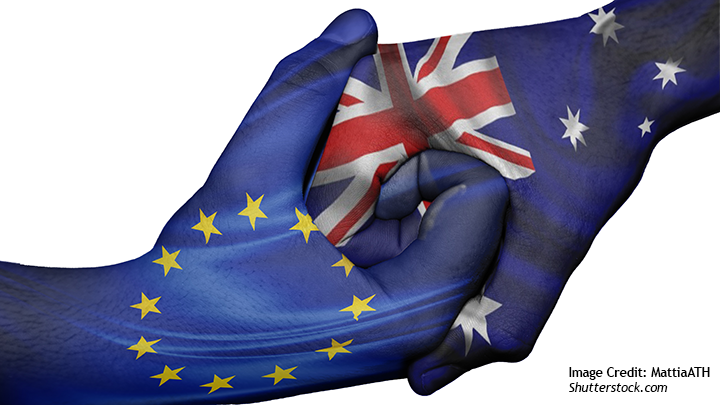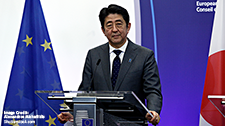Is Australia Hedging Again? Not Really.

Jagannath Panda, Richard Ghiasy and Julie Yu-Wen Chen
Australian Prime Minister Anthony Albanese, in his 2023 Lowy Lecture, emphasized that Australia’s foreign policy and national security are defined by a “complementary focus” on capabilities and relationships. Australia’s role as a middle power is bound by “shared opportunity” and “collective responsibility.” This is certainly true for the Indo-Pacific (described by Australia’s Foreign Minister Penny Wong as “the most consequential region of our time”), where intensifying geostrategic competition between China and the United States has complicated the fragile geopolitical landscape, and in turn impacted Australia’s security.
Related Publications
-
Navigating the Indo-Pacific: How Australia and the EU Can Partner for Peace, Stability, and Prosperity
To navigate the choppy waters of the Indo-Pacific, the EU and Australia must be on the same wavelength regarding shared interests in rules, values, and an open and liberal economic […]
-
Report of the Webinar on China’s Himalayan Hustle – Part IV: EU, India, and US – Framing a Troika to Scuttle China’s Himalayan Strategy?
This report is an outcome of ‘China’s Himalayan Hustle-IV’ webinar on “EU, India, and US – Framing a Troika to Scuttle China’s Himalayan Strategy?” which was conducted by the Stockholm […]
-
Strong Europe-Japan Relations are a Legacy of Shinzo Abe
Abe was a firm proponent of strengthening a free, open and rules-based Indo-Pacific. Not only was he steering Japan away from total dependence on the U.S. for its security, but […]
-
Challenging Western Views: Understanding Power and Stability in East Asia; An Interview with DAVID C. KANG
Dr. David C. Kang is Maria Crutcher Professor of International Relations at the University of Southern California. A leading expert in East Asian security, international relations, and political economy, Dr. […]
-
China’s Himalayan Hustle: Revisionism Resistance Must be the Order of the Region
This edited volume brings together papers to highlight the challenges and opportunities in mapping China’s Himalayan hustle. It aims to advance key debates about the importance of this region to […]




